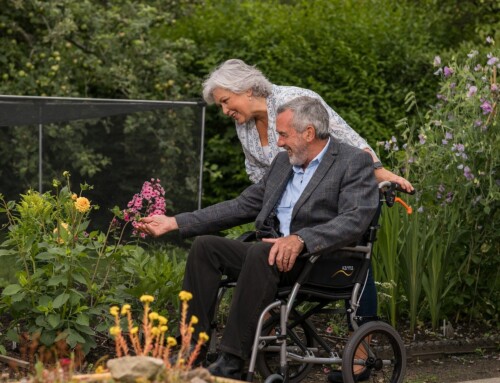Most people know what assisted living and memory care are and who these facilities help, but they think of it as something separate from their lives. These feelings often stem from misconceptions about these services, with many people holding outdated or incorrect beliefs that may lead them to overlook the numerous benefits these communities offer.

Misconceptions About Assisted Living
Misconception 1: Assisted Living Is Nothing More Than a Nursing Home
What makes A Banyan Residence different from a traditional nursing home? While both Florida assisted living facilities and nursing homes offer care for seniors, their approaches and levels of support offer diverse services. At its core, assisted living is designed to provide a safe and secure community for seniors who are largely independent but may need limited daily assistance, such as help during bathing, dressing, or managing medications. Residents can live in private apartments with their own balconies, yards, and sense of self, which offer a homelike atmosphere and allow them to maintain a sense of independence.
In contrast, nursing homes focus more on providing 24/7 medical care as needed for individuals with more serious health concerns. Assisted living residents enjoy the flexibility of personalized support without the institutional feel of a medical facility.
Misconception 2: Assisted Living Is Unaffordable
While monthly costs vary from place to place, the truth is that financial options are often available to help families, making assisted living more affordable. For instance, Medicaid, Veterans’ Benefits, and long-term care insurance can help cover the cost, and in Florida, many residents find that assisted living can be comparable to the total costs of living at home, especially when factoring in mortgages, utilities, groceries, and home maintenance. If you are curious how A Banyan Residence can fit into your family’s budget, we encourage you to contact our facility and discover the available financial assistance resources we can provide or guide you toward.
Misconception 3: Assisted Living Is Isolating
Nursing homes have a reputation for being lonely places, and many seniors considering a move into assisted living believe these locations will also lead to social isolation in a similar fashion. In reality, assisted living facilities focus on community and social engagement nearly above all else. Many people actually become more socially active once they move to assisted living because like-minded peers surround them. Plus, they have more opportunities to form new friendships through facility groups and clubs. Even compared to living alone at home, assisted living is a great option to combat feelings of senior loneliness and anxiety.
Misconceptions About Memory Care
Misconception 1: Memory Care Is Only for People with Severe Memory Loss
Some people believe that memory care is only for individuals who are in the late stages of dementia or Alzheimer’s disease. However, memory care is suitable for people at various stages of cognitive decline, including those in the early and middle stages. We are increasingly learning that early intervention through memory care services can provide significant benefits. When seniors receive personalized care that allows them to maintain as much independence as possible, they can continue to stimulate their brain and cognitive functions instead of having 100% of their needs taken care of by full-time caregivers.
Misconception 2: Memory Care Facilities Take Away Residents’ Independence
Just like nursing home fears, some seniors believe that moving into a memory care facility means surrendering all autonomy. Seniors with memory issues generally have more care needs, so it stands to reason that they will have less autonomy than other residents living in general assisted living portions of the community. However, memory care residents still maintain their independence, as their environments are designed to minimize confusion and unrestricted movement—from open, easy-to-navigate floor plans to clearly marked signs and secure outdoor barriers. Residents can make independent choices regarding their daily routines and participate in activities that interest them, all within a safe and supportive environment.
Misconception 3: Memory Care Is Only Necessary for People with Aggressive Behaviors
Some people believe that memory care is only required for individuals exhibiting severe or aggressive behaviors due to dementia – the people who cannot safely coexist with other seniors in an unrestricted way. This is not true. Memory care benefits anyone with cognitive impairment, regardless of their behavioral symptoms. Staff members help seniors through their issues, and many come to feel more comfortable and relaxed over time despite cognitive issues that change their feelings and behaviors.
We hope this information helps you and your family understand the benefits of assisted living and memory care. If you would like to learn more, contact A Banyan Residence today to schedule a tour of our facility.







